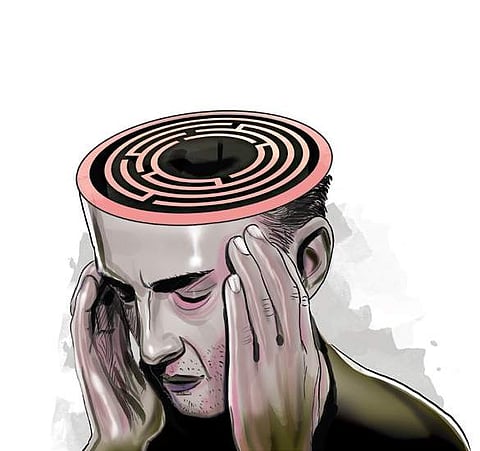

HYDERABAD: Clinical depression has long been called out by mental health experts as an insidious disorder that can have far-reaching effects on the well-being of a person. Apart from the general lethargy, loss of sleep and reduced interest in day-to-day activities, depression can have physical manifestations like body pains and gastro-intestinal issues. Among women, depression can also wreak havoc on the menstrual cycle, to the extent that a few might not have them for a couple of months.
“When a woman faces irregular menstrual flow or misses periods altogether, she would generally approach a gynaecologist. Irrespective of whether she has been diagnosed with depression or not, her chances of visiting a gynaecologist are more. Greater awareness about clinical depression is required to address this.
In typical depressive episodes, the individual usually suffers from depressed mood, loss of interest, and reduced energy leading to increased fatiguability. Both depression and menstrual cycle are related to hormones. If the hormonal cycle gets affected, our neuro-biological system goes for a toss, leading to mood, thought and behavioural changes,” said Dr Meenakshi Moorjani Kasturi, consultant clinical psychologist with Pause for Perspective at Begumpet.
Echoing the same, Raisa Luther Bhatia, psychologist at Hope Trust, said: “It is common for women with an underlying vulnerability to depression or suicidal ideation to experience moderate to severe mood changes before or during menstruation cycle. This is often misunderstood and not talked about.”
How does a woman know if the symptoms she is experiencing is due to depression or PMS?
Dr Meenakshi explains: “If these symptoms are seen only before or during the periods cycle, then we can assume that it is just Premenstrual Syndrome (PMS). But if they persist for a longer time (minimum two weeks) along with dysfunctionality, significant distress and probably suicidal thoughts, they should visit a psychiatrist or a psychologist. It is also necessary that the person keeps a track of changes in mood (emotional changes), thoughts and behaviour before, during and after menstrual cycl. In case the person notices these changes, it will be easier for her and her loved ones to handle the situation.”
How can this be dealt with?
“In case the symptoms are independent of the cycle, then the person can approach a psychiatrist or a psychologist who can recommend the best course of treatment. It is very necessary that the person does not assume anything herself and visits a doctor for medical help and psychological intervention in case she is unable to cope with the situation,” said Dr Meenakshi.
What is PMS?
Premenstrual Syndrome (PMS) is the combination of physical, emotional and behavioural changes that a woman might experience before and during her monthly menstrual cycle. The woman might experience bloating, tender breasts, muscle aches, mood swings, fatigue etc.
What is mood diary?
A mood diary can help a person keep a track of the changes in the moods he/she experiences and identify the triggers. It will help them establish a link between the mood changes and work on avoiding them. There are several templates available online which can be downloaded.